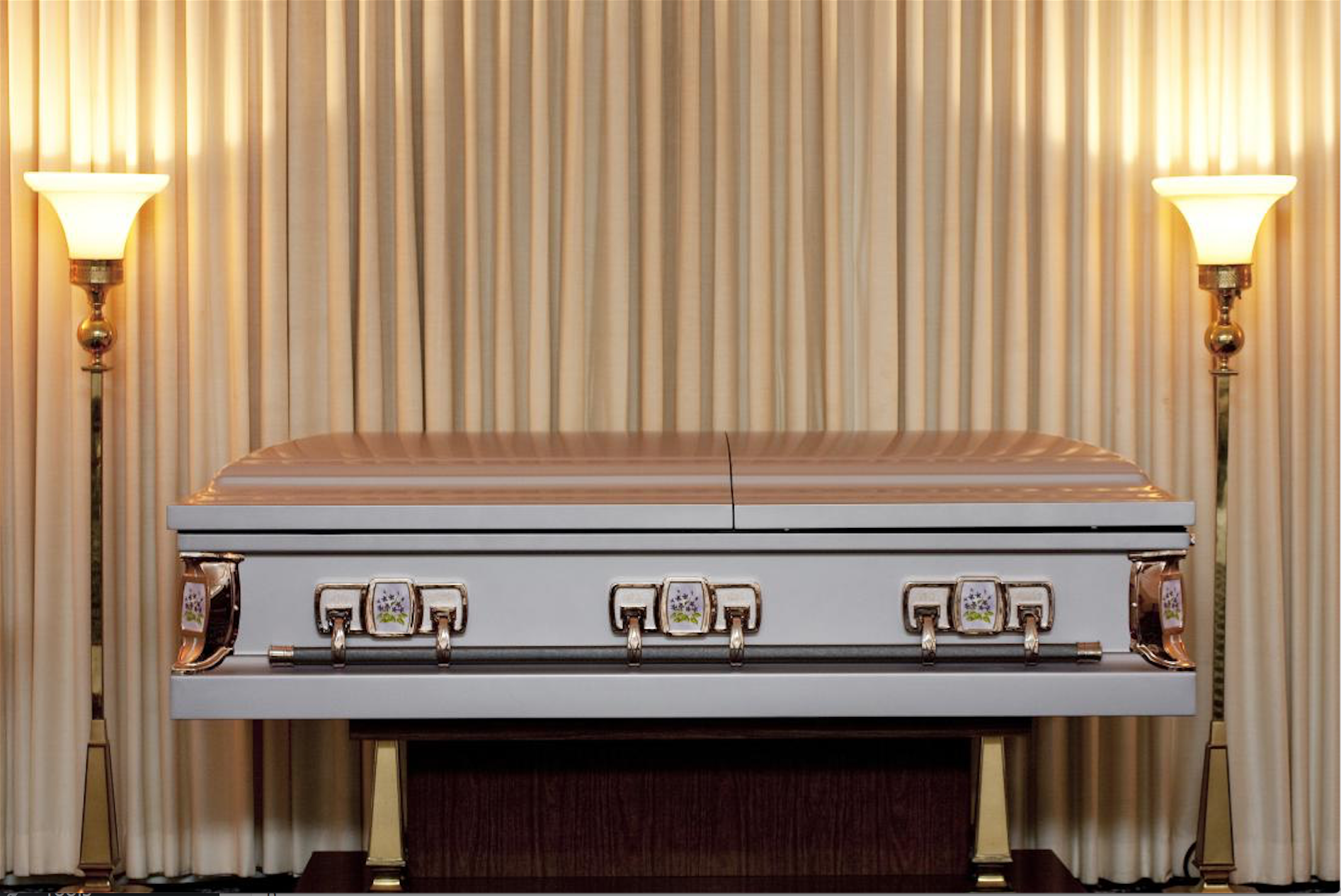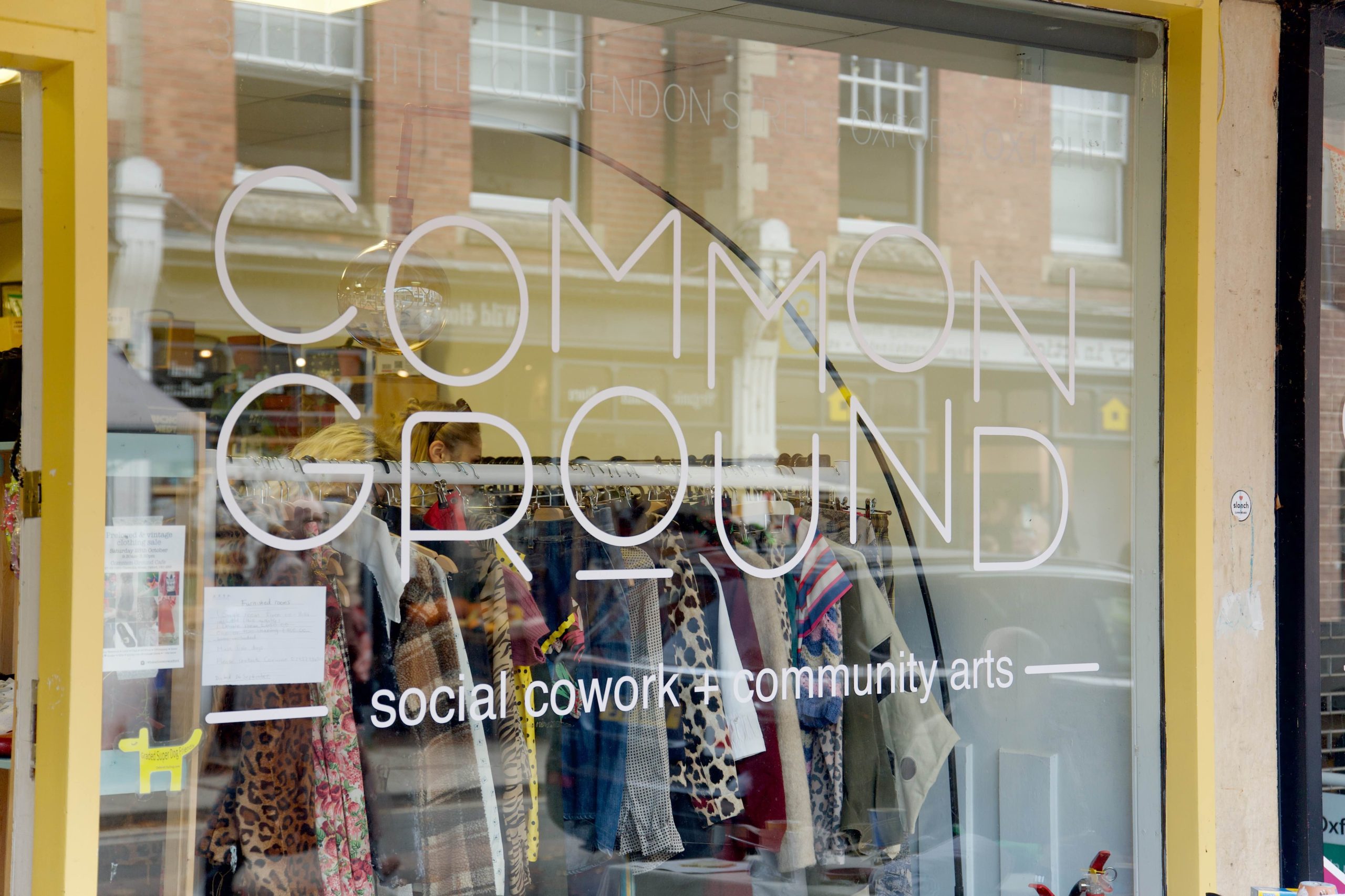
Grave Talk
“Can you imagine how hard it is to get a dead body into skinny jeans?” I’m talking to Liz Roberts, an unapologetic murder mystery enthusiast and a funeral director at my local family-run parlour. “Bury me in my finest pyjamas, that’s my only wish. And don’t let the men in the office see me.”
Liz has been working in the funeral service for nine years now, and is one of a rare breed of professionally fulfilled forty-somethings. With her traditional top hat and double-breasted jacket hanging proudly in the wardrobe, her career illustrates a recent shift in an industry long dominated by men, the woman’s role largely confined to office work and arrangement rooms. Liz is young and trendy and looks nothing like one of the many miserly undertakers that haunt Dickensian novels. Far from being a pale-faced man in an office clogged with creaky doors and cobwebs, she is a mother, drawn relatively late in life to an industry into which most are born, trading a company car and corporate job at Tesco for hearses and cremation.
Liz is keen to dispel the many myths surrounding her profession and the funeral industry at large. She confirms that ashes in a casket are not just anybody’s, that coffins are never reused, that she doesn’t spend half her time plying gold from dead people’s molars. The stuff about stiffies, though, is bona fide information. She tells me that a big part of being a good funeral director is simply working with “total military precision at all times,” whether you’re arranging a death certificate, booking a horse and carriage, or painting the nails of a 90-year-old corpse. But there’s also the very human side of things, that element of compassion so essential to an industry that trades with people at their rawest and most desperate. A lot of what it means to be a funeral director, she attests, is the ability to say, “This is really shit. Come and give me a cuddle and we can talk about headstones later.”
Far from feeding some morbid fascination, Liz gives me the impression that working with the dead is an eternally rewarding line of work. She tells me it’s “an honour and a privilege” to be able to care for somebody’s loved one at one of the few moments they are powerless to do so themselves, and the genuine gratitude of clients lets her know that funeral directors do more than just provide a service. Liz boasts a devoted fan club with an average age of 87, and jokes about the cohort’s newest member, a client who had recently asked her to dye his late mother’s hair for him in tribute to their lifelong tradition. “So there I am, hunched over this corpse with a bottle of Nice ‘n Easy going, ‘Is the water alright for you there, love? Where did you say you’re off to, again?’ It strikes me that her philosophy in life as in death is that a sense of humour never hurt anybody. But when I ask her if it ever feels wrong capitalising on death, she directs the question of moral ambiguity towards the bigger co-operative funeral houses. At these parlours, Liz tells me, a commission is handed out for bigger headstones and mahogany caskets. “But that’s still more of an American way of death,” she says and assures me that whereas her independent house arranges about 370 funerals a year, the local co-op must only trade about a tenth of that. She cringes even at the idea of using the word “sell” at work .
Even in a society that equips us with rituals for death and grieving, the topic of human mortality hardly provides suitable dinner-table conversation. Not around children, at least, and certainly not around the dying. But rather than any kind of shock-effect, Liz puts our stilted discourse down to fear and superstition: a pre-paid funeral is taken as a jinx rather than a clever financial investment, “as if talking about how to lay your terminally ill granny to rest is really going to be the thing that bumps her off.” I wonder whether this has any impact on the funeral process itself, and Liz tells me that often to her disbelief clients won’t even be able to answer the first question on a funeral director’s list; will it be burial or cremation? “People are bad at discussing the practicalities of dying,” she says, “They do that bit about sticking dad in a cardboard box, but you can see them practically squirming when I tell them that can be arranged.” It’s a shame, Liz says, because she rather likes the cardboard casket, with its rope handles and wild-flower display. If only there were as many Pinterest boards for ‘rustic funerals’ as there are for weddings, I say, and wonder about a market for jam-jar urns. Liz tells me, rather, that funeral trends are usually governed by recent episodes of Eastenders.
Like many others in the funeral industry, Liz is trying to transform our stiff-lipped approach to the business of dying. She is about to set up her own Death Café, a place where local villagers will have the chance to come together and discuss death over a cup of tea and cake. Far from some conference for prying existentialists, Death Cafés have garnered worldwide attention as safe spaces in which total strangers can open up about anything from personal experiences of loss to fears of funerals or the physical embarrassment of dying, with all its noises and smells. Liz mentions Grave Talk, a café space recently launched by the Church of England. Whether or not you believe in kingdom come, the idea is to re-familiarise people with death in an age where it is less, for want of a better word, lived, with fewer of us dying at or during birth, or before reaching adulthood, or of incurable disease.
To get over the initial awkwardness, Grave Talkers use cue cards as a stimulus for conversation. They ask questions like ‘What would you write on your epitaph?’ and ‘Where would you most like to die?’ “There was this incredible honesty among strangers,” Liz remarks before rushing off to her murder mystery night. “It’s hard to imagine, but we spoke for hours about the first time we’d seen dead bodies as if that were a completely normal to spend an afternoon.”
If death in Christian and humanist tradition is sanitised by the refrigeration and beautification of the recently dead, Liz hopes that coffee clubs like these will provide a space in which to lay things bare. It’s all about the simple significance of creating a transparent dialogue around one of the only two certainties in life: death and taxes. And in light of recent events, it looks as if one might be more certain than the other.






